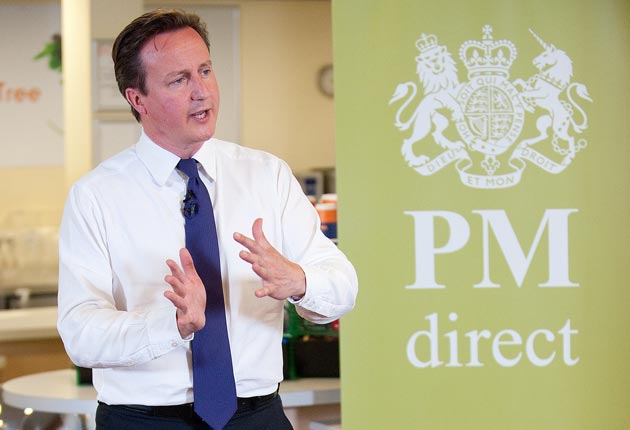I'm sorry I misspoke, says Cameron after accusing Iran of having nuclear weapon

Your support helps us to tell the story
From reproductive rights to climate change to Big Tech, The Independent is on the ground when the story is developing. Whether it's investigating the financials of Elon Musk's pro-Trump PAC or producing our latest documentary, 'The A Word', which shines a light on the American women fighting for reproductive rights, we know how important it is to parse out the facts from the messaging.
At such a critical moment in US history, we need reporters on the ground. Your donation allows us to keep sending journalists to speak to both sides of the story.
The Independent is trusted by Americans across the entire political spectrum. And unlike many other quality news outlets, we choose not to lock Americans out of our reporting and analysis with paywalls. We believe quality journalism should be available to everyone, paid for by those who can afford it.
Your support makes all the difference.Having got his history of the Second World War wrong recently, David Cameron blundered over current affairs yesterday when he claimed Iran had developed a nuclear weapon.
His aides admitted that he "misspoke" during a question-and-answer session with the public when he was asked why he was supporting Turkey's interest in joining the European Union.
The Prime Minister replied that Turkish membership could help to address problems "like the Middle East peace process, like the fact that Iran has got a nuclear weapon".
While there is international concern about Iran's uranium enrichment programme, even the most hawkish of its critics do not believe it has yet assembled a nuclear bomb. A Cameron aide acknowledged the mistake but added: "If you watch back the Prime Minister's words, it is clear he is talking about Iran's pursuit of a nuclear weapon."
But Chris Bryant, the shadow Europe minister, said: "Considering [that] Iran's nuclear ambitions constitute one of the most important foreign policy challenges facing us all, it is not just downright embarrassing that the Prime Minister has made this basic mistake, it's dangerous."
Just before the slip, the Prime Minister was berated by Kathy Finn, a retired telephonist, for describing Britain as America's "junior partner" against the Germans in 1940.
A chastened Mr Cameron, who made the remark during a visit to the US last month, replied: "What I meant to say was that I was referring to the 1940s, not 1940. You are absolutely right and I was absolutely wrong."
During his "Cameron Direct" appearance in Hove, he said the coalition had received 63,000 ideas for saving money since it asked public-sector workers for suggestions last month. Another 37,000 have come from the public.
Mr Cameron highlighted two proposals which would be implemented – streamlining the rules on criminal records checks for NHS workers, and requiring people whose visa applications are refused to pay towards the cost of appealing against the decision.
"For example," he said, "if you work in the health service, every time you go to a different hospital you have to have a new Criminal Records Bureau check. Why? Someone else working in the immigration system said it is mad that when people appeal against a visa decision, even though that appeal may cost £10,000, that appeal is entirely free. Something else we can change."
Other ideas submitted included negotiating cheaper mobile phone contracts across Government, potentially saving the taxpayer millions of pounds, and changing all the computer software used in Whitehall departments.
Join our commenting forum
Join thought-provoking conversations, follow other Independent readers and see their replies
Comments